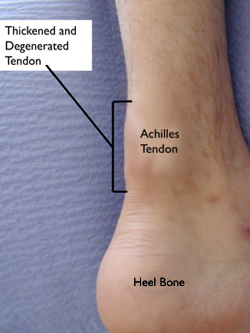Plantar Fasciitis Braces in Wong Ling HKSAR
Podiatrists for Plantar Fasciitis Treatment in Wong Ling HKSAR, China

Chronic Achilles Tendon Problems. Achilles Tendonitis is a term that frequently describes a swelling of the Achilles tendon or its covering. Keeping your tendons, ligaments, and muscles strong and flexible will aid in your recovery and assist you keep from reinjuring your Achilles tendon. Beginning a training program after a duration of inactivity or including miles or hills to a running program are 2 examples of things that put people at threat for Achilles tendonitis. Furthermore, wearing high heels all the time can cause the tendon and calf muscles to get much shorter, and the switch to flat shoes and workout can put additional pressure on the heel. I 'd nearly given up running distance altogether after the most recent occurance. Foot and ankle pain also might be an indication of other overuse injuries that can trigger foot and heel discomfort, like plantar fasciitis and Sever's disease. Achilles tendon injuries account for 5-12 % of all running injuries, and occur disproportionately in guys. This can take place during an intense athletic activity or perhaps during easy running or jumping. Initially, the podiatric doctor might treat the Achilles tendonitis by putting heel lifts into the patient's shoes. Persistent achilles tendinosis is a tough condition to treat, particularly in older athletes who appear to suffer more often. So this insertion tendosis is the worst running injury I have actually ever had (10+ years of running 60 mpw). I discovered not just custom-made orthotics to be a waste of money, but heel lifts also intensified the circumstance for me - in fact, the more time I spent barefoot or in my Nike Free's, the much better I felt. Consider altering your exercise routine if you believe running or another high-impact sport is causing your foot pain. While we may recommend that runners do calf stretching to chill out their calf muscles and enhance their ankle range of motion, this frequently does more harm than excellent-- tugging aggressively on the harmed tendon fibers is similar to pulling on either end of a knotted rope. I hope I will be able to do away with these supplements one day, but as of today, that's exactly what it took me to be able to run for about 1 hour, or something like 7 km ... without significant pain. A podiatrist can carry out gait analysis to determine any biomechanical concerns and remedy them with orthotic inserts which are used inside shoes, or for less sever cases recommending on proper shoes for your running design. For example running on soft surface areas, specifically sand is not good for the achilles tendon as it enables the heel to sink causing additional stretch on the tendon. Numerous professional running stores will do gait analysis and have experience of advising the right shoes. If you think you might have Achilles tendonitis, check in with your physician before it gets any worse. Later on after entirely packing my achilles up on hardfloor courts, i went to the GP who said i had IT and needed to see a physio or sports podiatrist to obtain arranged. Nevertheless, you ought to never ever attempt these as a very first resort or you could do more damage to the plantar and increase your healing time. Symptoms of Achilles tendon issues include swelling in the ankle area and extreme or mild discomfort. The suggested treatment for Achilles tendinitis consists of icing, mild stretching, and restricting or modifying activity. Non-steroidal anti-inflammatory drugs (NSAIDS) such as ibuprofen (Motrin, Advil) and naproxen (Naprosyn, Aleve) might also be recommended to soothe the inflammatory procedure in the tendon. Achilles tendonitis is diagnosed by a history and health examination of the patient who explains pain at the back of the ankle with walking and/or running activities.
Heel Pain Doctors and Surgery in Hong Kong
Previous Plantar Fasciitis Brace Next Plantar Fasciitis Brace Supplier
Plantar Fasciitis Braces Around Hong Kong
Plantar Fasciitis Braces in Tsai Muk Kiu HKSAR
Plantar Fasciitis Braces in Chung Wan HKSAR
Plantar Fasciitis Braces in Tai Om Shan HKSAR
Plantar Fasciitis Braces in Kong Ha HKSAR
Plantar Fasciitis Braces in Mau Tat HKSAR
Plantar Fasciitis Braces in Tsung Tsai Yuen HKSAR